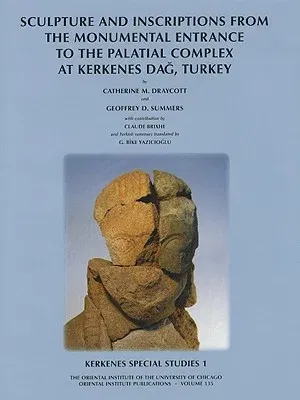Between 2003 and 2005, various remains of sculpture and fragments of an
important inscription in the Old Phrygian language were unexpectedly
found during excavations at the sixth century BC walled city on Kerkenes
Mountain in the highlands of Central Turkey. These unusual finds have a
significant role to play in the interpretation of the site and the
interpretation of Phrygian history and culture. Large-scale sculpture in
the round and small reliefs have distinctive characteristics so far
unattested within territory inhabited by Phrygian speakers, while the
extensive inscription names individuals so far unknown. Together, they
attest to an ambitious and distinctive identity of power at this
relatively remote mountaintop city, which may be equated with the
strongly fortified place of Pteria mentioned in Herodotus, and which may
have flourished for a brief period between the death of King Midas of
Gordion and the conquering of Anatolia by the Persian King, Cyrus the
Great. This volume presents these striking new finds, all of which come
from the Monumental Entrance to a sector of the city known as the
Palatial Complex. An introduction to the archaeological context is
followed by a detailed catalog of the sculpted fragments, associated
architectural fragments, and the inscribed fragments. Within the catalog
there is erudite discussion of comparanda aimed at placing the unique
material in its wider cultural and historical context, as well as a
tentative reconstruction of the major pieces into a single monument.
Rounding off the work is a commentary on the Phrygian inscription by
Prof. Claude Brixhe. The volume is profusely illustrated with line
drawings and photographs of every fragment together with a set of color
plates that highlight the violence done to the monuments when the city
was looted and burnt in the mid-sixth century BC. A Turkish summary is
provided.

